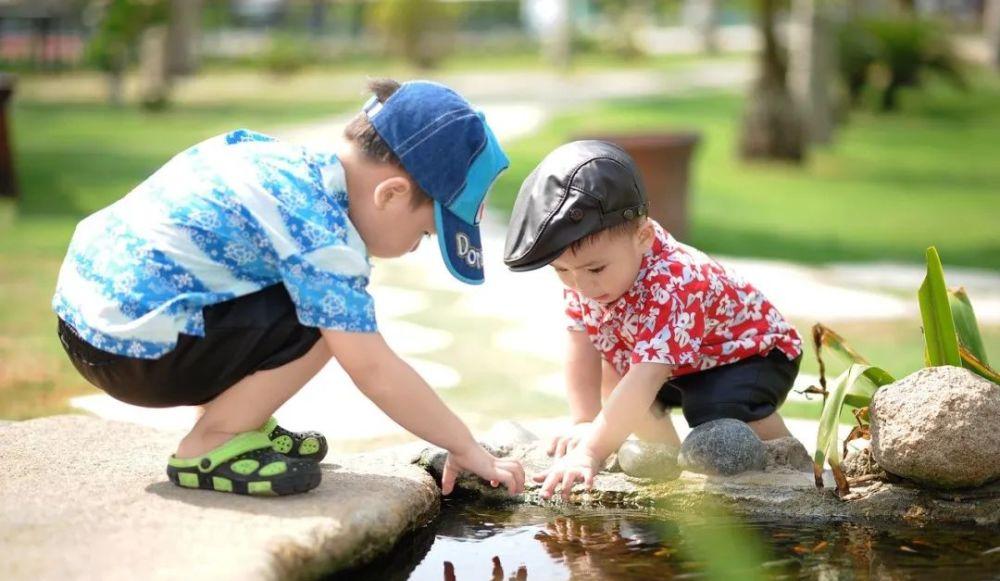
Recently, I read a book on emotional guidance, which is very rewarding, which talks about several misunderstandings of parents' education of their children, and shares them with you.
The first myth: tight control or laissez-faire
This kind of parent always speaks to the child in a commanding tone, and once the child does not comply, he will be furious and force the child to obey. Children will be obedient on the surface, but in fact they are very dismissive in their hearts.
The child is not obedient out of understanding and respect for the parents, but out of the authority and strength of the parents and subservience, which is a repressed balance, the child grows up to a certain age, will retaliate.
In the film and television drama, some young masters or Miss Qianjin of large families are strictly disciplined by their fathers from childhood, and as a result, when they grow up, they often do things out of the ordinary, and even indulge themselves.
The other extreme is laissez-faire, where parents will say: The child is shouting in the restaurant, I can't help it, he is still young and does not understand things.
Such children are not fully cared for and guided by their parents, do not learn interpersonal communication and emotional management skills from their parents, and their emotional world is like a desert.
Things that you can't get at home will be sought outside, such as messing with bad teenagers, early love, etc.
The second misconception: belittling or ignoring your child's feelings
When the child falls while running wildly, some parents will say: This is something, just stand up, don't cry.
Children are snatched away by other children toys, some parents say: is not a toy, what is the big deal, let other children play on the line.
This kind of parent is treating children from the perspective of adults, they forget that they are also from children, and things that are not worth mentioning in the eyes of adults may be a big thing in the eyes of children.
Children who are arbitrarily denied feelings by their parents will fall into confusion and do not know how to define and deal with their emotions.
In fact, in the first case, parents can say to their children: Baby, you fell, very scared, yes, come, let the mother hug, the next time you run to see the feet Oh.
In the second case, parents can say to the child: the child snatched your toy, you feel very angry, yes, go, let's go and ask what's going on, or we play with other toys first, you see how.
It is very important to clearly express the child's feelings and let him understand whether his emotions are afraid and angry at this moment, or grievances and sadness, which helps the child to sort out his emotions and understand others.
When some adults encounter emotional events, they do not have the emotional granularity of subdivision, they do not know what kind of feelings their mood is, and they do not know how to cope with and deal with them.
Therefore, children who can describe their feelings in clear words will be more mature and stable.
Parents, to pay attention to the child's feelings, children need not toys or rewards, but your full attention, to feel the child's feelings.
The third myth: relying too much on external rewards
Motivation is one of the most important techniques in leadership, and so is the child. Inappropriate incentives can be misleading for children.
For example, if a child likes to play the piano, parents say to their children: If you learn to play a piece of music, you will be rewarded with a favorite toy. As a result, the child's goal becomes to get toys, rather than enjoying the fun of playing the piano itself.
Or, a child is noisy in the library, and the parents are helpless, so they say to the child: You be quiet, I will wait for you to eat ice cream. The reward becomes a "bribe", which the child will often use against the parents in the future, and ask for ice cream through quarrels.
It is reasonable to do what the child should have done, such as eating on time, bathing, doing homework, etc., do not give material rewards, appropriate verbal praise can be. In the child's hobbies and academics, it is necessary to stimulate his internal drive, to work hard for interest and himself, not for external rewards.
Parents are the first and most important teachers in a child's life, and to be a good teacher, we must continue to learn parenting knowledge, practice and reflect, and lead by example.
How parents treat their children, how children will treat others.